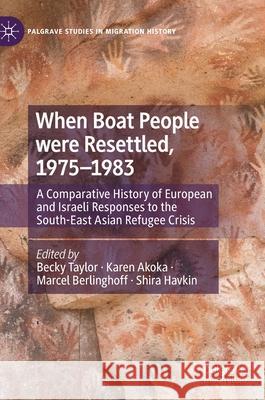When Boat People Were Resettled, 1975-1983: A Comparative History of European and Israeli Responses to the South-East Asian Refugee Crisis » książka
topmenu
When Boat People Were Resettled, 1975-1983: A Comparative History of European and Israeli Responses to the South-East Asian Refugee Crisis
ISBN-13: 9783030642235 / Angielski / Twarda / 2021 / 239 str.
When Boat People Were Resettled, 1975-1983: A Comparative History of European and Israeli Responses to the South-East Asian Refugee Crisis
ISBN-13: 9783030642235 / Angielski / Twarda / 2021 / 239 str.
cena 443,82
(netto: 422,69 VAT: 5%)
Najniższa cena z 30 dni: 424,07
(netto: 422,69 VAT: 5%)
Najniższa cena z 30 dni: 424,07
Termin realizacji zamówienia:
ok. 22 dni roboczych
Bez gwarancji dostawy przed świętami
ok. 22 dni roboczych
Bez gwarancji dostawy przed świętami
Darmowa dostawa!
Kategorie BISAC:
Wydawca:
Palgrave MacMillan
Seria wydawnicza:
Język:
Angielski
ISBN-13:
9783030642235
Rok wydania:
2021
Wydanie:
2021
Numer serii:
000824717
Ilość stron:
239
Waga:
0.45 kg
Wymiary:
21.01 x 14.81 x 1.6
Oprawa:
Twarda
Wolumenów:
01
Dodatkowe informacje:
Wydanie ilustrowane











